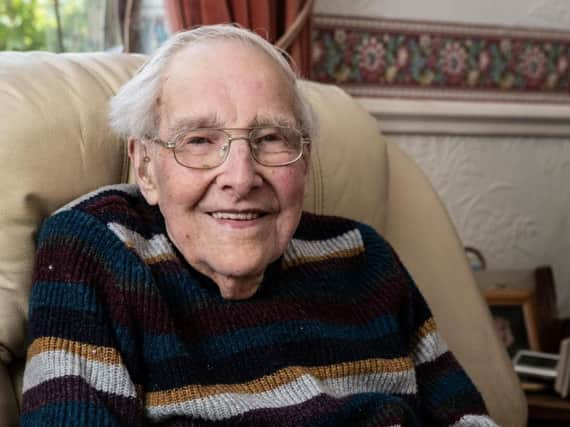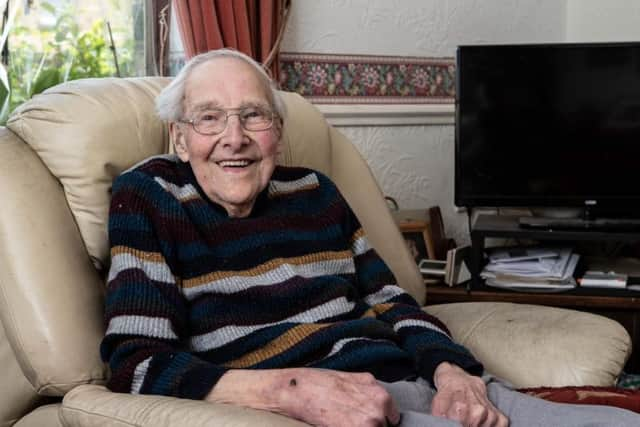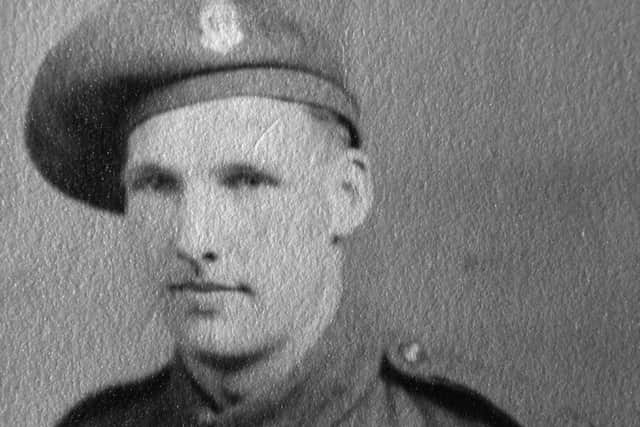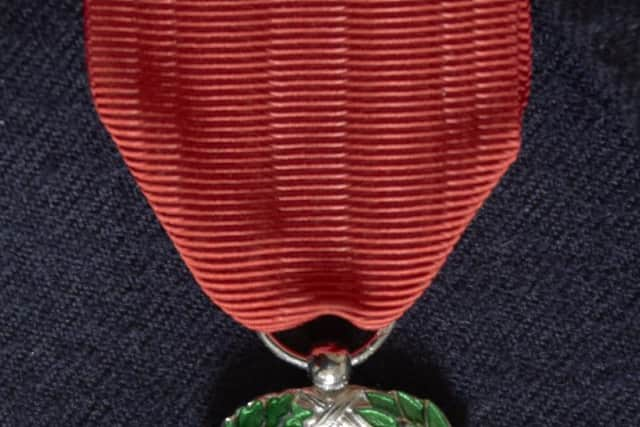D-Day: Brighouse veteran Willie recalls his role in Normandy 75 years on


After watching soldiers from the 3rd Canadian Infantry Division - hundreds of whom were killed - going ashore at Juno beach from daybreak on Tuesday, June 6, the 34th Field Dressing Station of the Royal Army Medical Corps got the call in the afternoon to follow in their footsteps.
"They gave us instructions that we had to get off the beach as quick as we could, down to the bottom, and then up the other side," says the Brighouse medic, who attended Brookfoot School as a child and had worked in the quarries in Southowram before joining the army.
Advertisement
Hide AdAdvertisement
Hide Ad"They said 'there's a road opposite, we've to go up that road for nearly a mile and set a dressing station up'.


"That was at Church Farm. They said there was a church tower on the left, about three quarters of a mile up the road. There were empty houses up the other side. And the last house was Church Farm.
"A tank had just got there before us, and the two Canadian gunners were going to brew some tea up. 'We'll have some tea before we go any further' they said
"They got the tackle out, the water was boiling, and then the Germans, right down in the valley about a mile away, saw the tank turn round, just at the edge of the farm yard, and they fired a shell.
Advertisement
Hide AdAdvertisement
Hide Ad"The two lads that were going to brew the tea were both knocked out. It blew one lad just out of the farm yard, about three or four yards, and the other one it blew him about 20 yards away.


"They never bothered. They thought they were dead. The tank driver said 'we might as well go now, I can't do anything here' ad left them lying there.
"He said 'I'll go back down to the beach'.
"I went to this lad and got hold of his wrist, he was on top of some blackberry bushes, and I could feel his pulse.
"There was a young lad nearby, so I said 'get a stretcher and give me a lift will you?' We lifted him off of these blackberry bushes, onto the stretcher, and took him to the marquee in the farm yard.


Advertisement
Hide AdAdvertisement
Hide Ad"Some lads were brewing some tea up, so I said 'can I have a pot of that?' and I started giving this lad drinks of tea with a spoon so he didn't choke.
"We covered him with some blankets and put him into the marquee. I said 'will you see to this lad and I'll go see to the other one'.
"Me and two other lads took a stretcher - they'd have seen us would the Germans if they'd been looking.
"Three of us carried this stretcher to this lad, got hold of him, turned him on his back onto the stretcher, and pulled it back as we went.
Advertisement
Hide AdAdvertisement
Hide Ad"We took him into the marquee, I felt his pulse, and he was still breathing. They were both alive. They'd be alright."
Willie never found out what became of the two gunners.
"You don't know anything, you just treat them and that's it. You do your best for them.
"I've thought about them many a time. They could have been dead."
Willie, who turned 101 last month, was one of around 50 staff in each medical unit who were split between individual dressing stations.
Advertisement
Hide AdAdvertisement
Hide Ad"We were busy," he recalls of his five weeks at the station. "There was another dressing station just up the road.
"You'd get everything," says Willie, who also treated German soldiers.
"You were working all the time, there'd be folk coming in night and day.
"Then we'd get rid of some during the day, if a boat was in it would take some back to England.
Advertisement
Hide AdAdvertisement
Hide Ad"Then we were running short of blood, so the Quartemaster said 'get the wagon, the driver will be knocking about' and we went up to the floating road that goes out to the jetty (Mulberry harbour), but we had to wait to get on (to the ship) because there were 17 ambulances waiting to put patients onto the Red Cross hospital ship, so we had to wait for them to finish."
Dealing with the dead was an inevitability.
"We had a big black sheet, and you put those that passed away under it, and then just folded it back down again," Willie recalls.
"Each morning the wagon driver's job was, those that were under the sheet, they buried them down the side of the farm yard.
"They had a big bulldozer come and dig a trench out about six or seven foot wide and about a yard deep.
Advertisement
Hide AdAdvertisement
Hide Ad"They put them in in rows and then put soil over them. They were dug up by the French people later when we moved away, they would come and put them in the church yard then."
The sheer volume of casualties meant there was no time to reflect on the enormity of the operation Willie was part of.
"You hadn't chance to think about stuff like that," he says. "You had work to do, you had to be looking after somebody that needed help.
"You just had to keep going. You had work to do and you had to do it."
Advertisement
Hide AdAdvertisement
Hide AdBut three quarters of a century on, the memories are piercingly vivid.
"We sailed out of Southampton about five o'clock at night on the Friday, and when we set out we couldn't see where we were," he recalls. "It was becoming dark.
"We dropped anchor, and stopped there, and we were there until Monday night, and then at about five o'clock we set off again.
"We knew we were on the job then because they'd given everyone a pot of water to drink your sea-sick pill. And they'd make sure you took it.
Advertisement
Hide AdAdvertisement
Hide Ad"Then we were away, travelling through the night. And then at six o'clock, I don't know if it was a big cruiser or what, it was five miles behind us, and they just fired one shell, and that was the start.
"You couldn't hear yourself speaking. Every other ship opened up their artillery, firing onto the beach, until half past six, and then they had another signal, and it stopped.
"Then it was the signal for the lads to go on."
When asked if he thinks about it now, Willie says: "Aye, many a time. You wake up thinking about it.
"You wake up many a morning, and you're still there.
"You think about it in the night. You think a lot about it, but you have to carry on.
"We did what we could."